Have you ever wondered why your cat doesn’t respond to their favorite food? Or does it often seem upset? If yes, then as a cat parent, you should be aware of subtle signs of your cat’s illness. Pets have a habit of hiding their diseases and injuries; they always seek your attention with their muffled meow.
Being a cat owner, you need to pay attention to your cat’s eating and drinking interests, energy levels, urination, and excretion habits. While talking to a veterinarian, talking about your cat’s defecation color, frequency, and consistency gets awkward. But, being a cat owner, you should know how to get your cat out of all these conditions because your cat needs you!
In this article, we will discuss all possible causes of diarrhea and treatments which will help you prevent and save your cat from this disease.
Diarrhea in Cats
Diarrhea refers to soft, watery, and loose stool. Diarrhea in cats can cause them to defecate more frequently than usual, have accidents in the house, and pass blood, mucus, or even parasites in their stools.
Though most occurrences of cat diarrhea go away on their own in a matter of hours or days, cats with diarrhea for more than a few days or who exhibit more serious symptoms (such as vomiting, appetite loss, bloody feces, watery stools, or exhaustion) should consult a veterinarian at once. Smaller cats and kittens with diarrhea are especially vulnerable to dehydration; therefore, a veterinarian should always examine them.
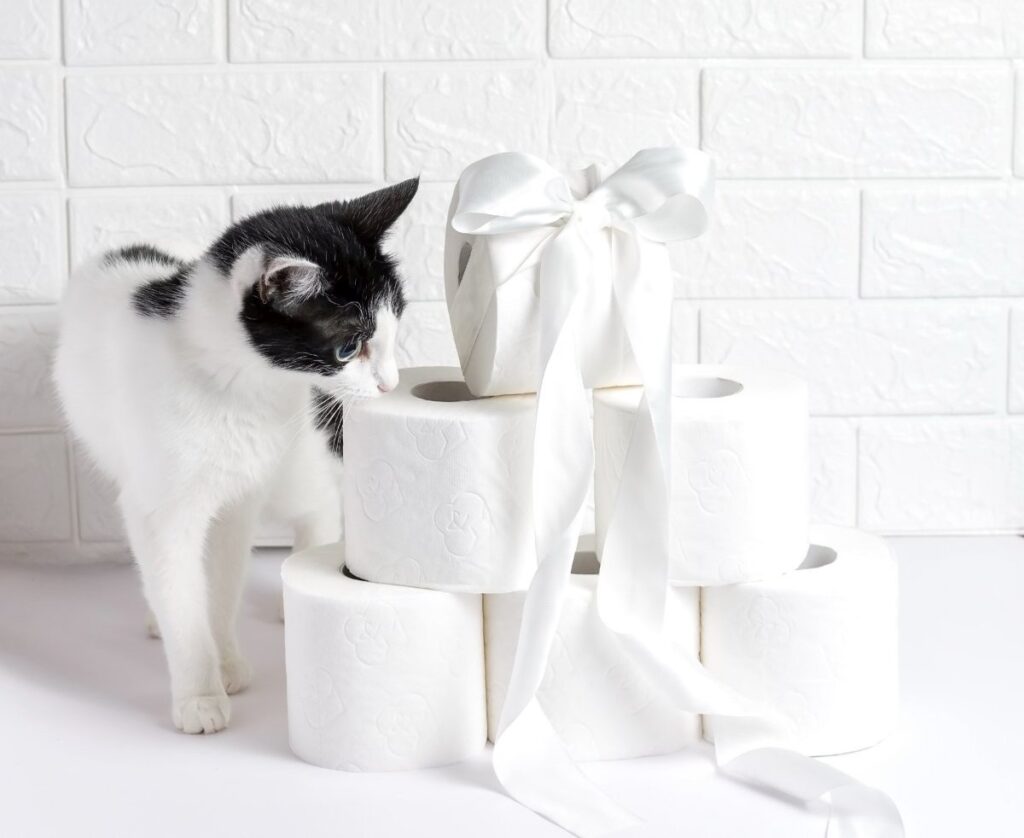
Symptoms and Signs of Diarrhea in Cats
Cats who have diarrhea may have the following symptoms.
- Mucus or blood in the stool
- Watery or loose stools
- Straining to pass feces
- Pale gums
- Vomiting
- Loss of appetite
- Weakness or fever
- Dehydration
- Worms in feces
- Accidents in the house
- Weight loss
- Abdominal pain
- Increased frequency or defecating
Causes of Diarrhea in Cats
Diarrhea in cats is caused by intestinal parasites such as hookworms, roundworms, or tapeworms. These intestinal parasites are the main reason causing your cat diarrhea, no matter if you stay indoors or play outside of the house.
- Intestinal parasites remain in the indoor cat’s system when they are young and infect themselves by exposure to parasites’ eggs. If your cat likes to play outside, you need to pay more attention. When your cat hunts or consumes wildlife, it is more likely to get exposed to various parasites.
- The most common parasite, roundworm, develops an infection in kittens when their mother nurtures them. Using dewormers will not prevent infections in kittens. Anthelmintic treatment as a kitten may not prevent reinfection, and adult cats may have a persistent infection.
- Cats often have a habit of smelling and eating contaminated foods that expose them to parasites.
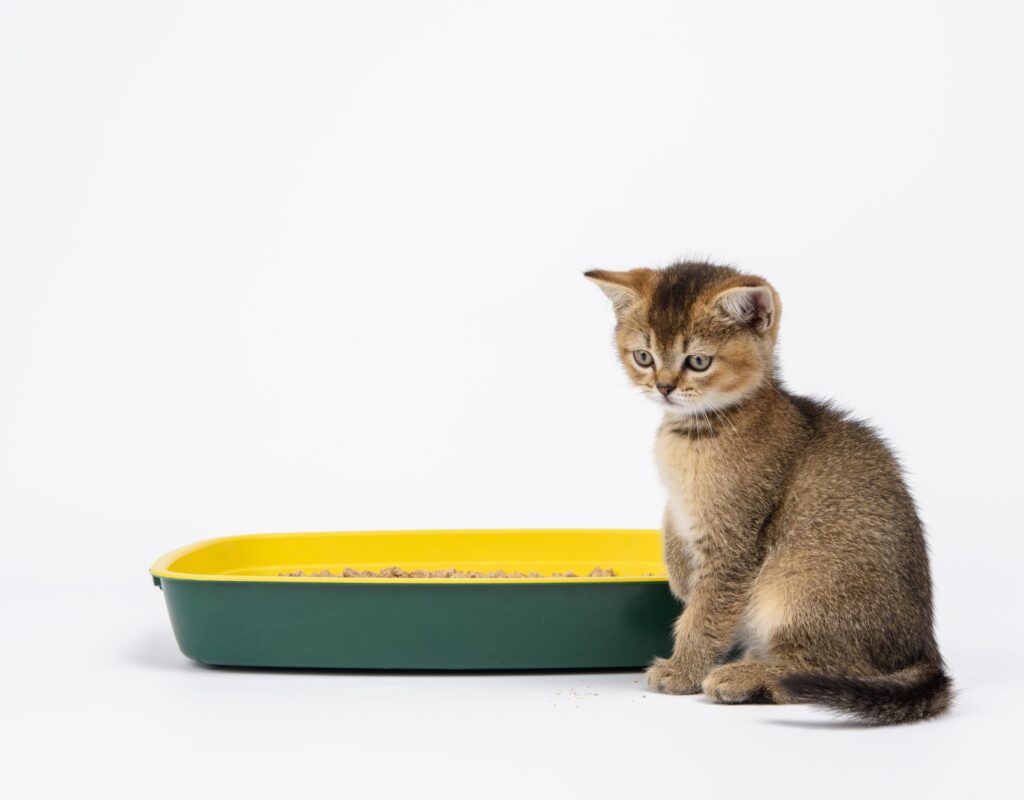
- Sometimes, they also ingest parasite eggs through grooming. If your indoor cat socializes with other animals, it can also be at risk of diarrhea. Seek a veterinarian who eliminates intestinal parasites under your supervision and recommends safe and healthy treatments.
- Other illnesses that can cause diarrhea in cats include bacterial, viral, and protozoal infections such as giardia.
- Food intolerance and nutritional imbalances cause cat diarrhea as well. Inflammatory bowel disease and lack of digestive enzymes also lead to diarrhea in cats.
Treatments for Cat Diarrhea
1- Change Your Cat’s Diet
The first and foremost thing to treat cat diarrhea is changing your cat’s food. By doing so, your cat’s intestinal tract can heal itself. It would be best to make your cat’s diet simple by eliminating any table scraps and focusing on giving it only food with complete nutrition.
2- Increase Water Intake
In diarrhea conditions, cats skip drinking water. For this, as a cat owner, make sure your cat intakes a sufficient amount of water to prevent dehydration. Always keep your cat’s bowl filled with clean water; also, add her favorite diluted chicken or beef. This will keep your cat out of hunger. Another way to increase water intake is to switch its diet from kibble food to canned food.
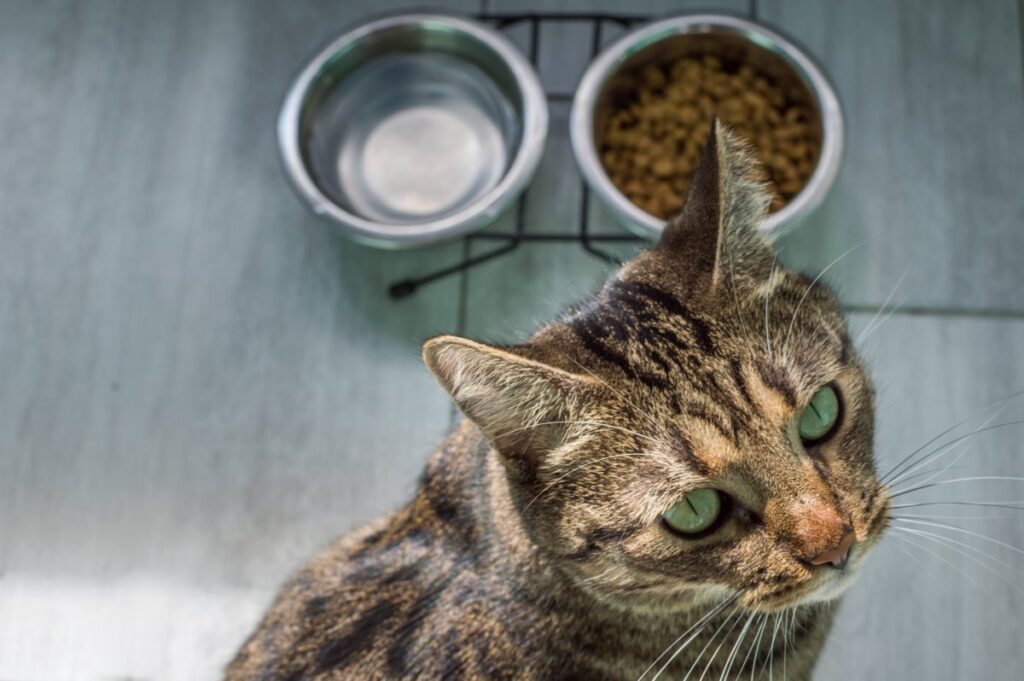
3- Low-Fiber
Low fiber is considered a high digestible diet, and cat diarrhea can get better by taking a high amount of fiber. If your cat is not suffering from diarrhea but is pooping more often than usual, then adding low-fiber in the diet would be worth trying. Always look for foods that are highly digestible for their sensitive tummy.
4- Anti-Diarrheal Medication
Never give your cat anti-diarrheal medicines without the recommendation and supervision of a veterinarian. Because without information and knowledge of these medicines can be dangerous for your cat. In addition, kaolin-pectin can be safely given to cats.
5- Probiotics
Some bacteria are necessary for cats’ intestinal tract as they help normal digestion. If diarrhea in cats becomes severe, it may continue after the initial attack (stress, illness, antibiotic therapy, etc.) has subsided. The bacterial population of the cat’s intestinal system will go back to normal after probiotic supplements. Always prefer probiotics that are made for cats by a reputable company.
6- Rest
For recovery from diarrhea, your cats need more sleep than usual. It’s essential to make your cats rest to allow them to sleep. However, if they seem tired despite taking a rest, then talk to your vet for advice and suggestions.
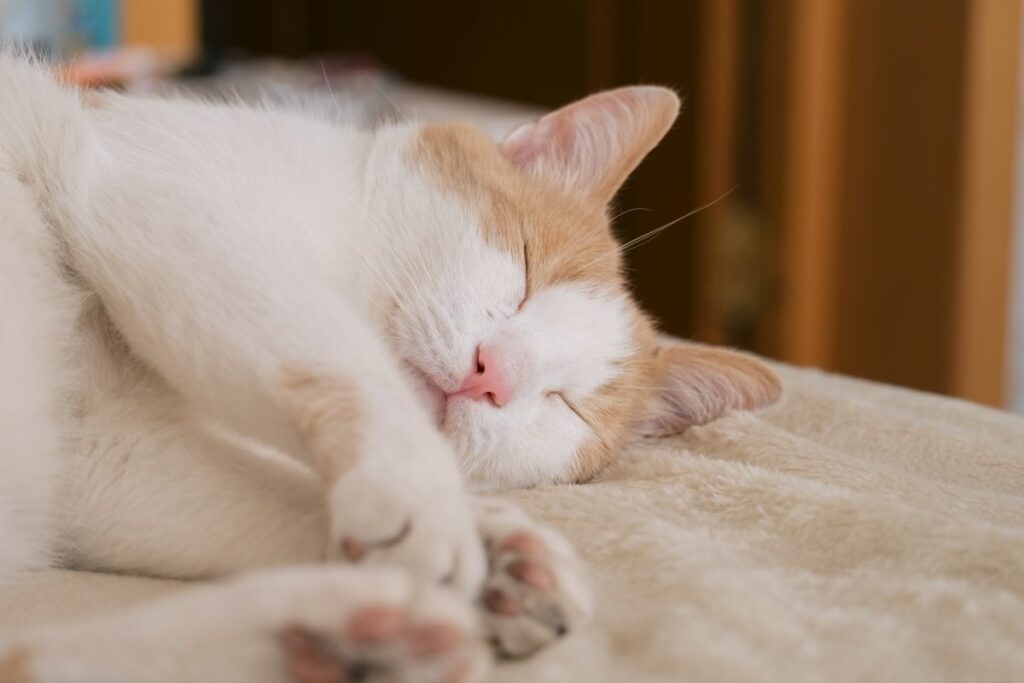
Prevention of Diarrhea in Cats
To prevent your cats from diarrhea:
- Keep them away from the things that are not good for their digestive system.
- Avoid giving them table scraps; instead, feed them healthy and completely balanced cat food.
- Keep your cats away from potential toxins such as chemicals and houseplants.
- Take your cats to the vet for more than a year for their recommendation about your pet’s health.
Moreover, if you have an outdoor cat, the routine fecal analysis is important, but if your cat is an indoor one, you need to check its stool periodically for parasites.
Final Verdict
After observing the above symptoms and causes of cat diarrhea, you need to treat your cat with the treatments given above. If your cat’s condition worsens, consult with the vet.

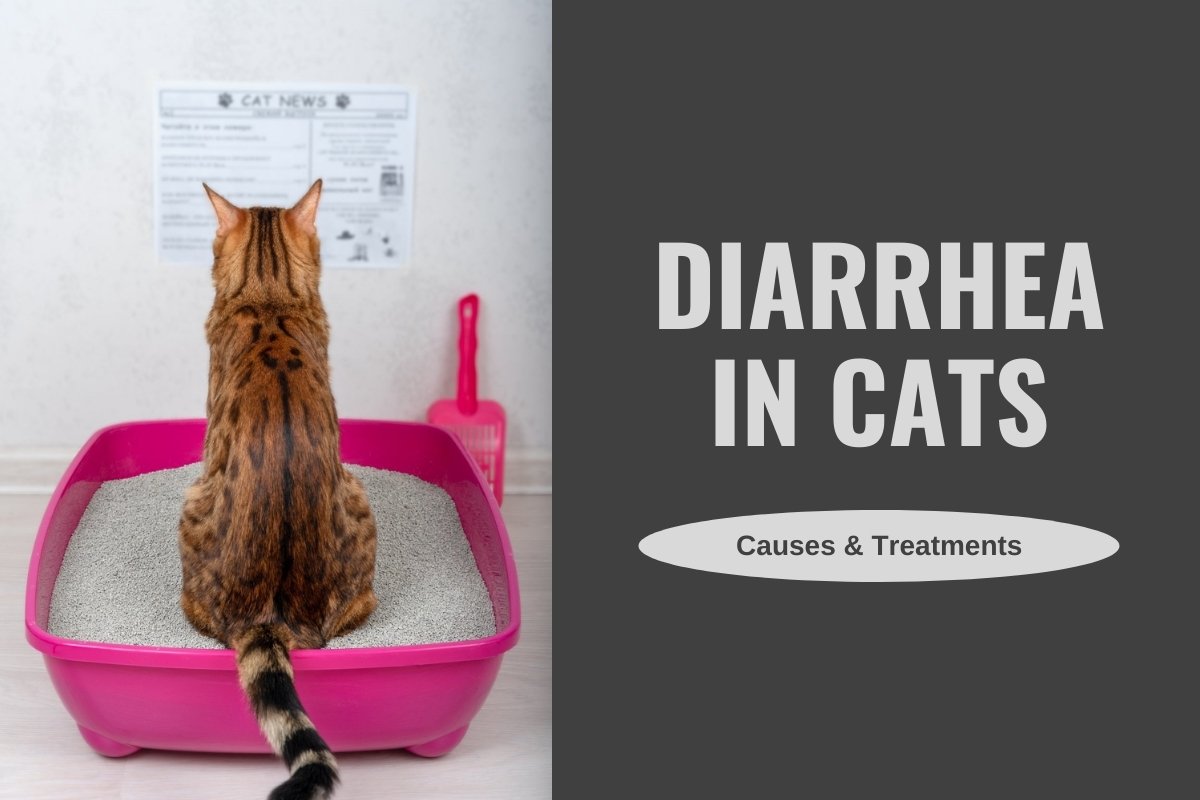
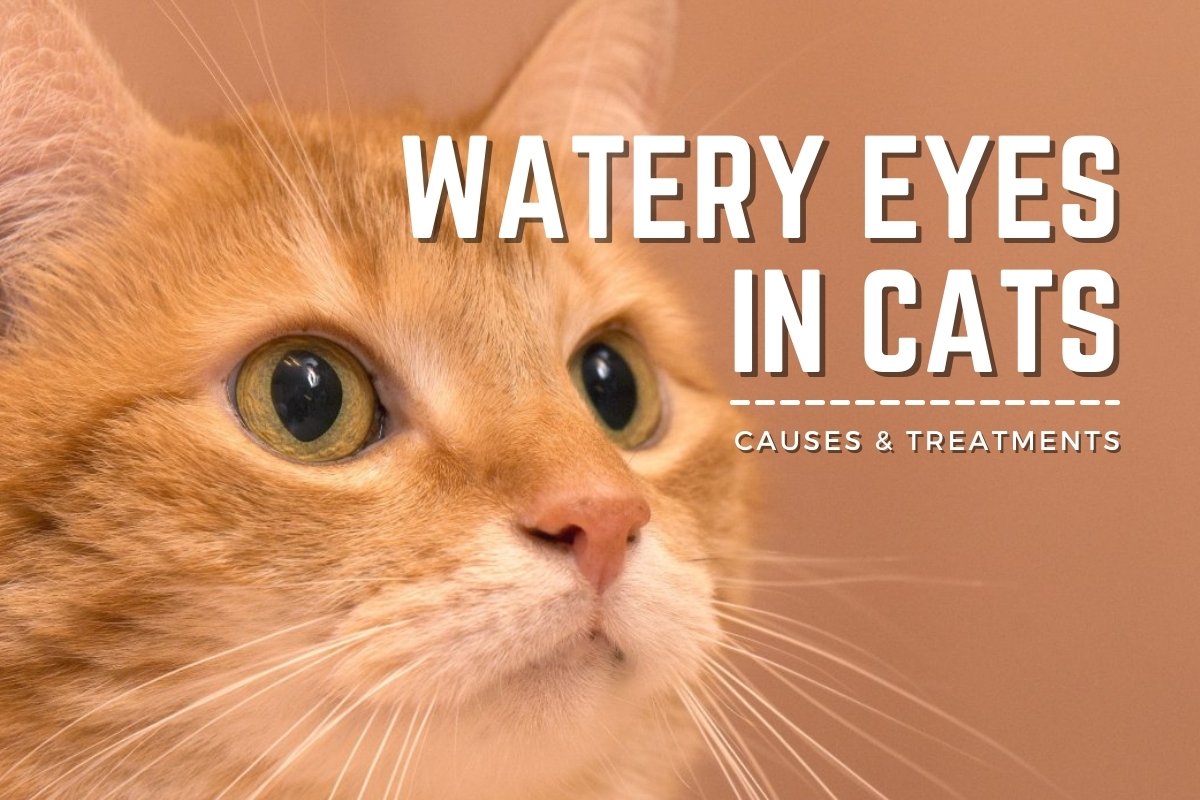
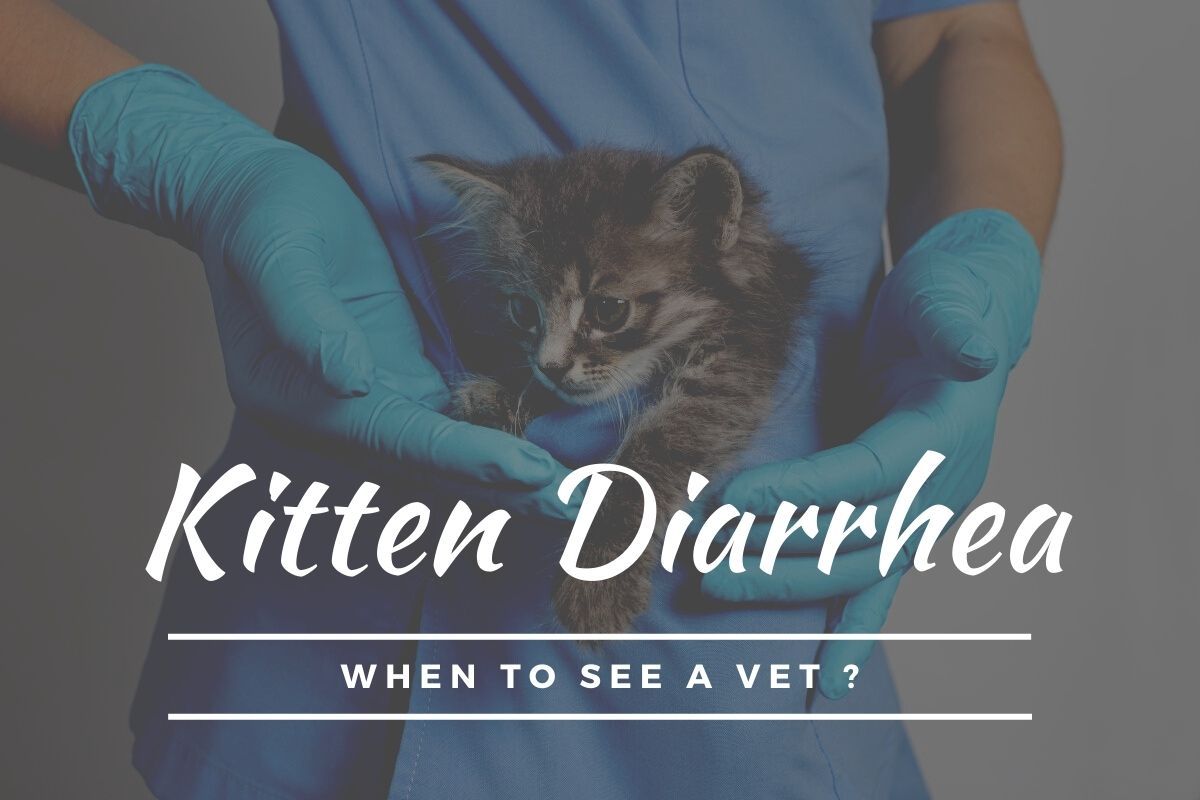
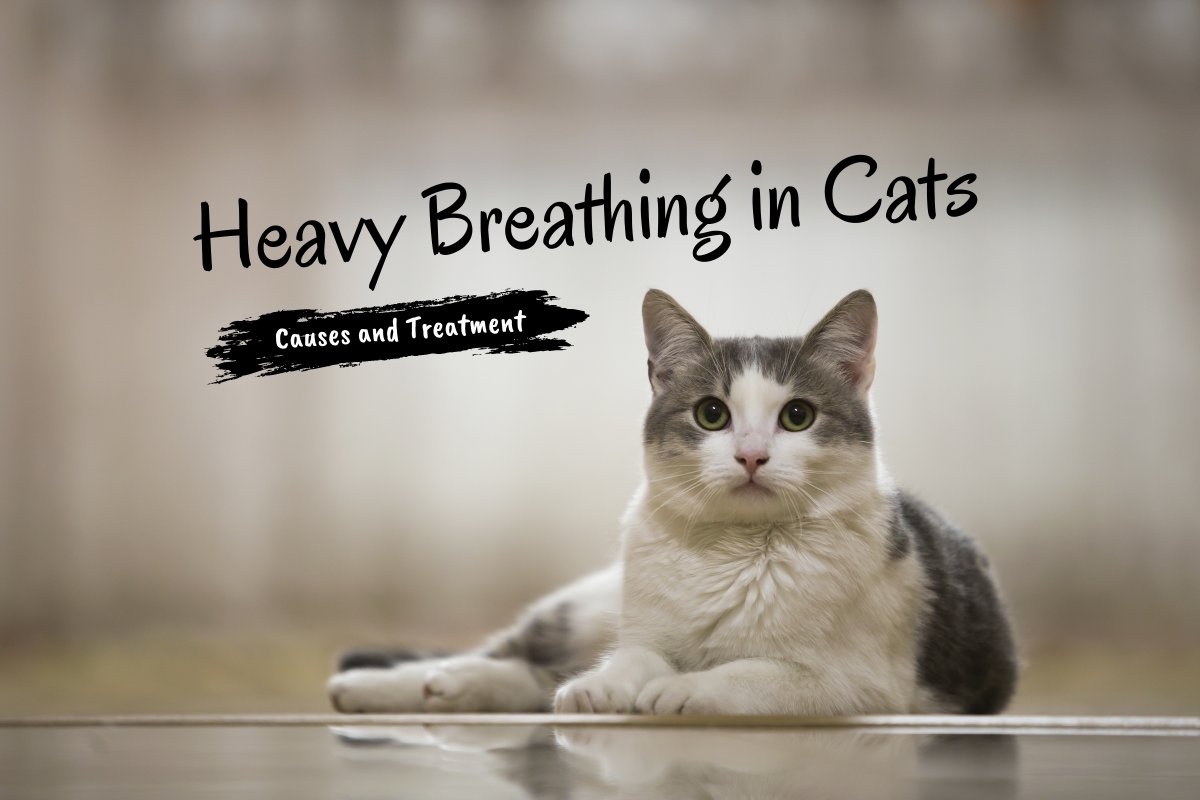
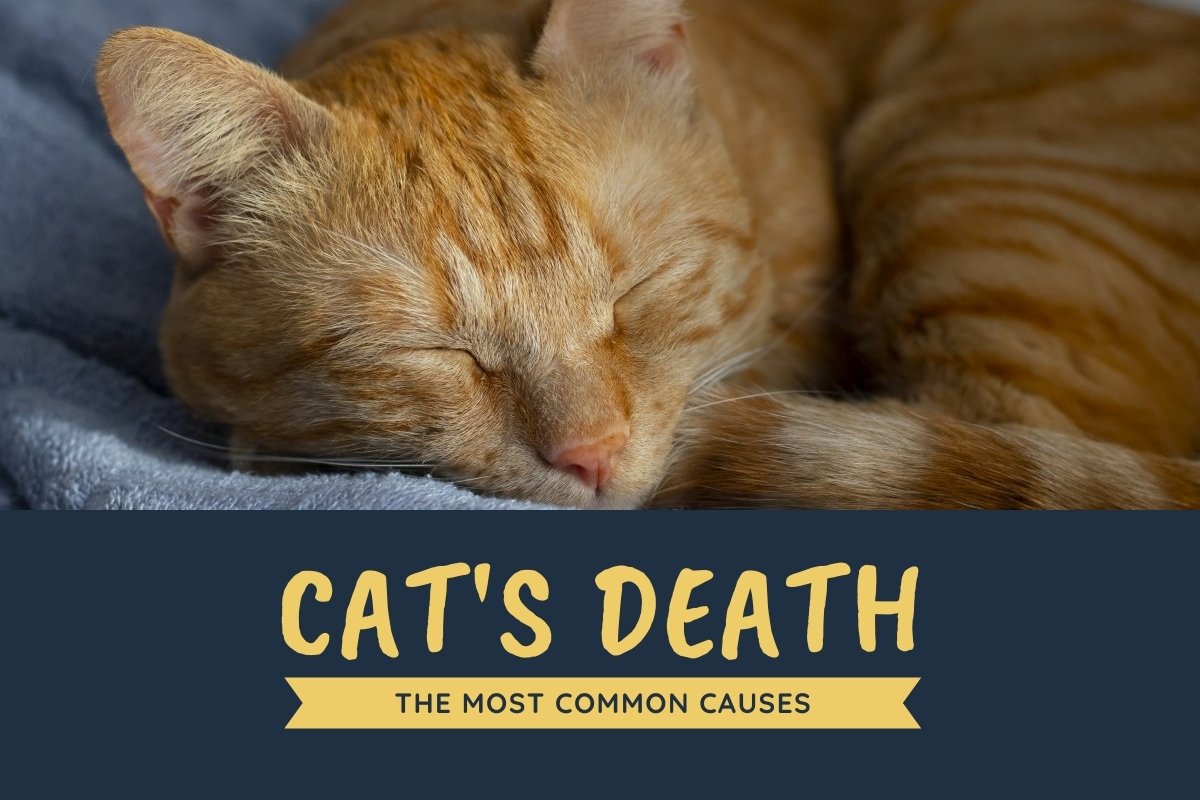
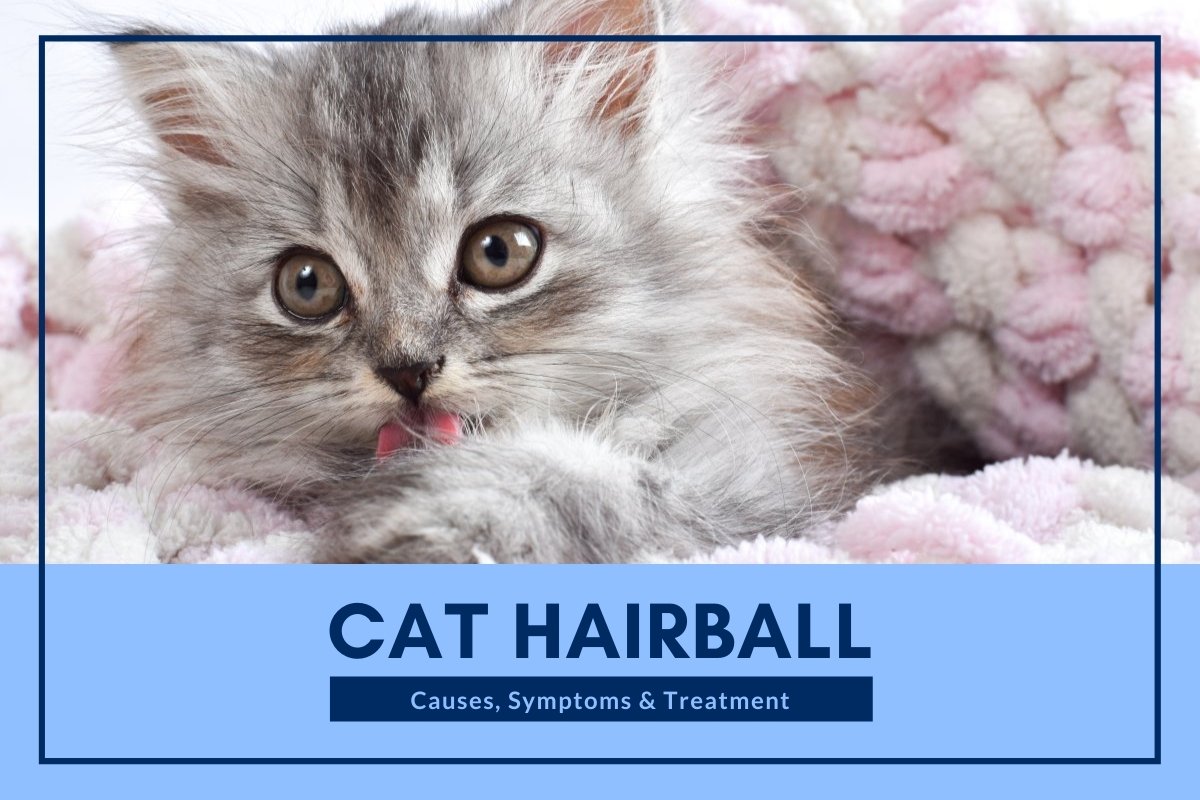
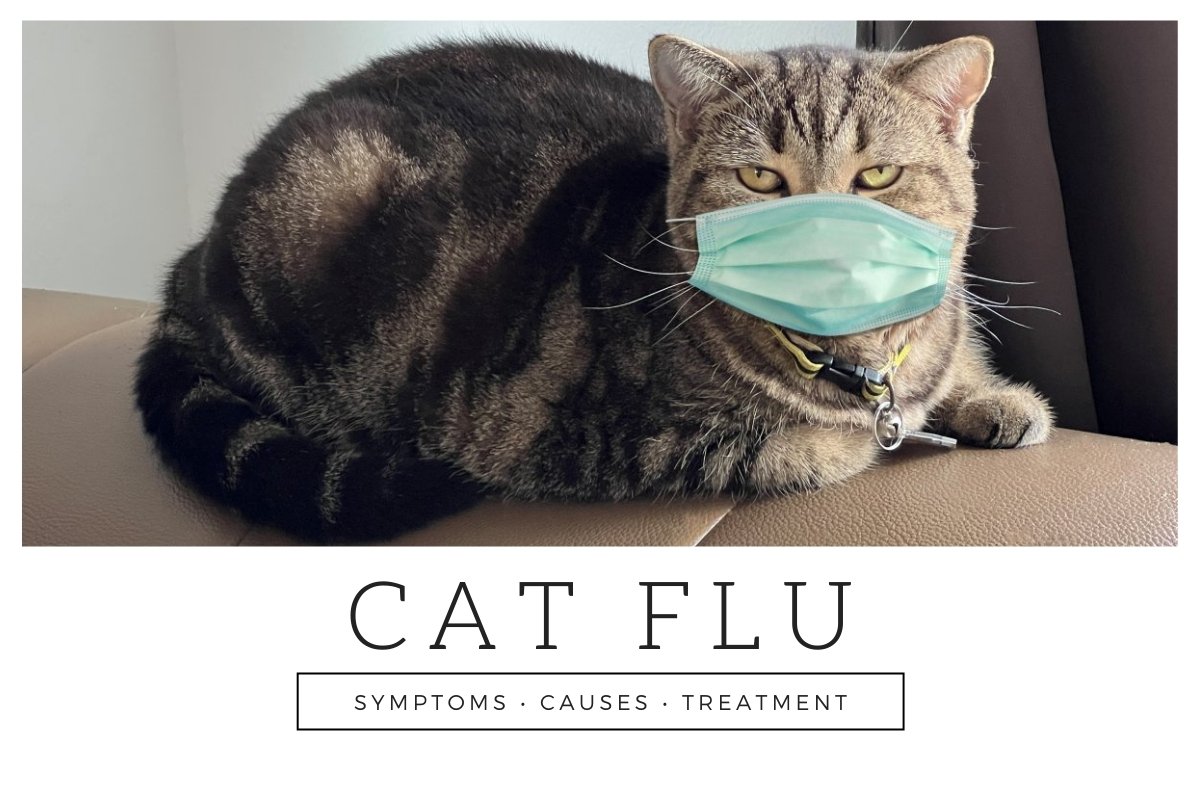
5 comments